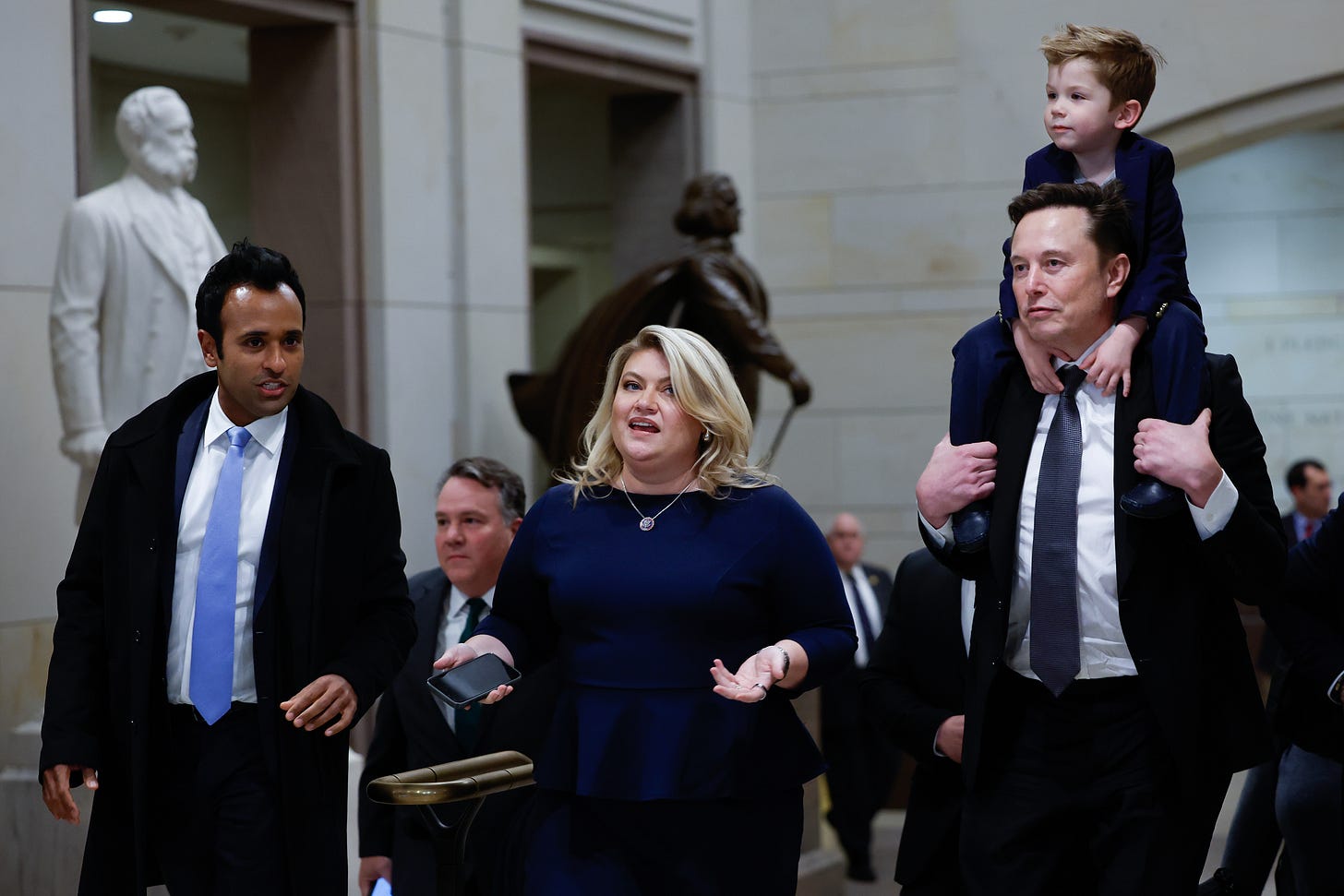Reverting to the American Mean
What if the policy assumptions and norms of the past several decades were merely a passing phase?

As I wrote about last week, one reason I’ve been struggling intellectually since the election is that the scale of Donald Trump’s victory last November surpassed what I expected. For him to win the national popular vote, sweep the swing states, and nearly persuade a majority of the voters to elect him to a second presidential term after an attempted self-coup and the insurrection of January 6, numerous felony indictments in multiple jurisdictions, and several other (to my mind) disqualifying acts … well, it didn’t so much surprise me as confirm my worst fears about the American electorate.
But how to characterize this confirmation? I don’t think it shows a plurality of Americans have opted for authoritarianism, let alone fascism. Neither do I think it makes sense to write off the voters as ignoramuses who deserve to get it good and hard for their idiocy. This doesn’t mean I think their choice to elevate Trump to the White House once again was wise. Far from it. But I do think it’s a mistake to keep insisting Kamala Harris and the Democrats deserved to win. I know I’ve invoked the quote before, but it as Clint Eastwood’s character puts it in The Unforgiven, “deserve’s got nothing to do with it.”
The Waning of the Old Pieties
What I propose, instead, is deep, hard thinking about how we got here. And part of that process has to involve a reckoning with American history. I’m talking about the long-term character of that history, not just an appeal to the comfortable, self-congratulatory pieties that emerged in the wake of the Second World War, over the course of the Cold War, and then became especially entrenched after the demise of the Soviet Union.
I don’t mean to belittle the highly moralized version of American exceptionalism that prevailed through much of this most recent series of chapters in our history—the version that treats the country like an almost-chosen nation fulfilling the providential task of bringing freedom and democracy to the peoples of the world and then wages an ongoing struggle to defend them against the predatory tyrannical regimes that roam the planet. I tend to take a more ironic and skeptical view of this outlook than many of my Never Trump friends. But I respect and admire it, too. I even found myself applauding the Harris campaign’s efforts at the DNC last summer to appropriate it without apology.
But here’s the thing: In 2024, the old pieties lost, fair and square. But in favor of what? That’s the question we need to understand. Looking to analogous strong men and right-populist parties around the contemporary world (Putin in Russia, Orbán in Hungary, Erdogan in Turkey, Modi in India, the RN in France, and the AfD in Germany) brings one form of clarity. But our own history brings another.
There was a dissenting tradition of conservative opposition to the way liberalism invoked civil religion to wage the Cold War and defend the New Deal—a tradition that includes Robert Taft, George Wallace, and Pat Buchanan. Trump’s style of politics has much in common with this tradition. But the tradition itself has deeper roots.
Keep reading with a 7-day free trial
Subscribe to Notes from the Middleground to keep reading this post and get 7 days of free access to the full post archives.


